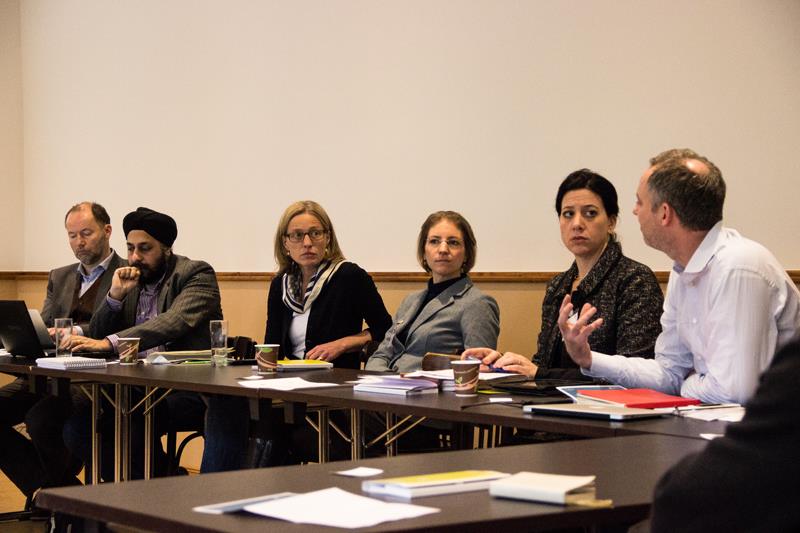– Post by Ms. Megan Rae Blakely, PhD Candidate, CREATe/ School of Law, University of Glasgow
 I recently had the opportunity to attend a two-day research workshop in Berlin co-organized by CREATe and the Alexander von Humboldt Institute for Internet and Society (HIIG). The workshop was titled ‘Reforming Formats – Producing and Protecting Audiovisual Formats in Convergent Media.‘ Here, I would like to share some perspectives from this workshop which are of relevance to me in the pursuit of my research study.
I recently had the opportunity to attend a two-day research workshop in Berlin co-organized by CREATe and the Alexander von Humboldt Institute for Internet and Society (HIIG). The workshop was titled ‘Reforming Formats – Producing and Protecting Audiovisual Formats in Convergent Media.‘ Here, I would like to share some perspectives from this workshop which are of relevance to me in the pursuit of my research study.
This blogpost reports, in particular, the presentation by Professor Jessica Silbey, Professor of Law at the Suffolk University Law School, Boston, USA. Her presentation was titled ‘Borrowing and Contests over Form, Distribution and Market Control: Analysis of an Empirical Study in the US’. A related publication is available here.
My PhD, sponsored by CREATe, investigates international intellectual property law and intangible cultural heritage protection in developed countries, and I was particularly interested in Professor Silbey’s work bringing qualitative research into U.S. legal scholarship and the subsequent reactions and discussion amongst international practitioners and researchers. While Professor Silbey’s work focuses on broader questions than the operation of alternatives to legal copyright systems, such as trading audiovisual formats, her research delves into the misalignments behind statutory law and social practice and thus is extremely valuable for investigating whether certain types of intellectual property should be highly fortressed by legal protection in order to achieve the inventivization and preservation goals in many areas of international intellectual property.
For my own research, this is highly important in determining how and why intangible cultural heritage is propertized and for seeking an optimal balance between legal exclusions and the public good.
A detailed report of the other presentations at this workshop is available here. A fuller documentation of the workshop will be available shortly on this site.
